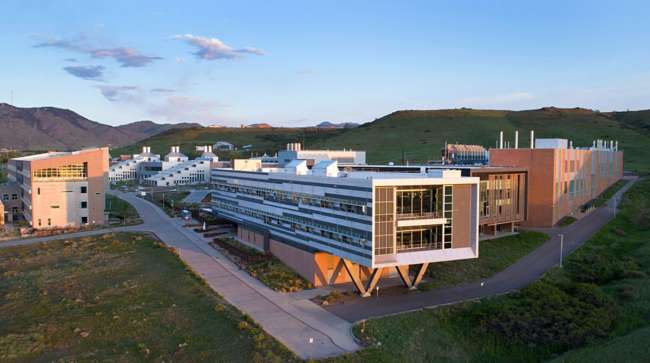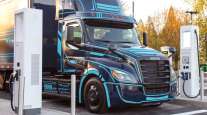Staff Reporter
DOE Studying ‘Soft’ Costs to Deploy EV Charging

[Stay on top of transportation news: Get TTNews in your inbox.]
The U.S. Department of Energy is studying so-called soft costs of deploying electric vehicle charging infrastructure that sometimes are overlooked, and notes that the outlay for such items — such as permitting, inspections, administration and utility interconnections — can be higher than those for buildout costs, such as charging station construction, equipment and software.
DOE’s National Renewable Energy Laboratory is leading the initiative in partnership with peer national laboratories to add clarity about soft costs that governments and private-sector companies may incur as they consider building out EV infrastructure.
Ranjit Desai, NREL’s principal investigator for EV supply equipment soft costs, noted that EV charging infrastructure costs are hard to manage, difficult to compare and vary widely due to charger types and locations.
“With soft costs sometimes comprising more than half of the total cost of EV supply equipment projects, it’s especially important to gain a sense of contributing factors and to have them well-documented to help stakeholders mitigate soft costs, optimize and increase the cost-effectiveness of their buildouts,” Desai emphasized. “Industry data will be essential to helping us build that knowledge base.”

Desai
NREL is working with Lawrence Berkeley National Laboratory in California and Idaho National Laboratory in a project funded by the Joint Office of Energy and Transportation, a federal union of DOE and the U.S. Department of Transportation to promote moving from traditional energy in transportation to zero-emission infrastructure.
The goal of the new study is to identify how to lower soft costs for installing EV supply equipment so more vehicle chargers can be used nationwide.
“We’re finding that land use and development codes, including zoning and permits, have the most variety across the nation,” Desai explained. “EV charging is not always explicitly outlined in codes, and even if they are, the lack of clarity within them and variance across the authorities that manage these processes leads to stakeholder uncertainty.”
NREL executives believe standardization of soft costs could pave the way to better predict and handle these associated fees if the expenditures are better understood. But the time needed to complete the work is a separate challenge.

Andrews-Sharer
“One soft cost associated with [electric] charging installation is time,” said Erin Andrews-Sharer, NREL research project manager. “The longer the process takes, the more labor hours built within the soft costs of the project.”
She noted that the study is focusing on this aspect of acquiring EV permits since timing can vary and be lengthy, and suggested there could be opportunity to streamline some processes.
NREL investigators are in the early stages of the project. They currently are identifying required data, gathering information from stakeholders and tracking metrics.
“A website to share engagement opportunities for identifying, tracking, and addressing soft costs is on track to be published later in 2024,” according to NREL. “The project’s findings will also be made publicly available later in the calendar year.”
Want more news? Listen to today's daily briefing below or go here for more info:




